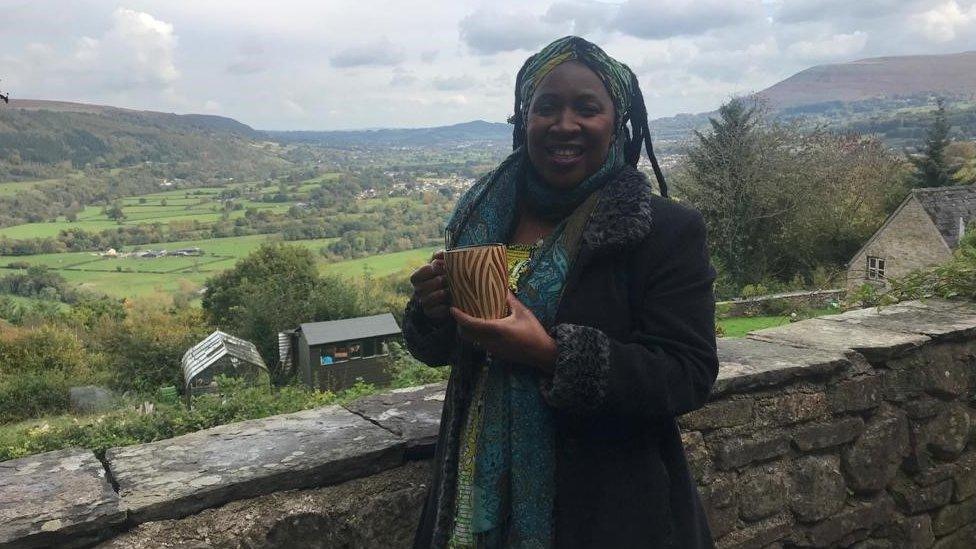Black history: Can school curriculum help curb racism?
- Published

Onyx Uwandulu says often schools are not able to provide a catered approach because they do not understand the experience of minorities
A generation could be changed with the right education and representation in schools, a woman who felt "traumatised" by her school days has said.
Onyx Uwandulu, 21, said schools were not equipped to deal with incidents of racism and focused only on violent black history.
In September, Wales' new curriculum will come into play, which includes mandatory diverse teaching.
A Welsh government spokesman said Wales was "leading the way".
Last week, Raheem Bailey, 11, lost a finger after reportedly running from bullies, who his mother said were racially and physically abusing him.
Onyx, an actress and performer from south Wales who grew up in the next county over from Raheem, said an inclusive education would "save lives" and create an environment where people of colour could achieve more.
What is the new curriculum?
Announced in 2021, the changes to the curriculum mean Wales is the first UK nation to have compulsory education about racism and the contributions of figures from Black, Asian and other ethnic minorities.
Launching in September in primary schools before being rolled out in secondary schools in 2023, it is based on six "areas of learning and experience" and does not set out exactly what schools should be teaching.
However, the changes mean all areas will need to reflect the diverse experiences and contributions in history.
After the murder of George Floyd by a US police officer in 2020, there were calls for greater recognition of Wales' role in colonialism and slavery to be taught in schools.
'I grew up thinking calling out racism was petty'
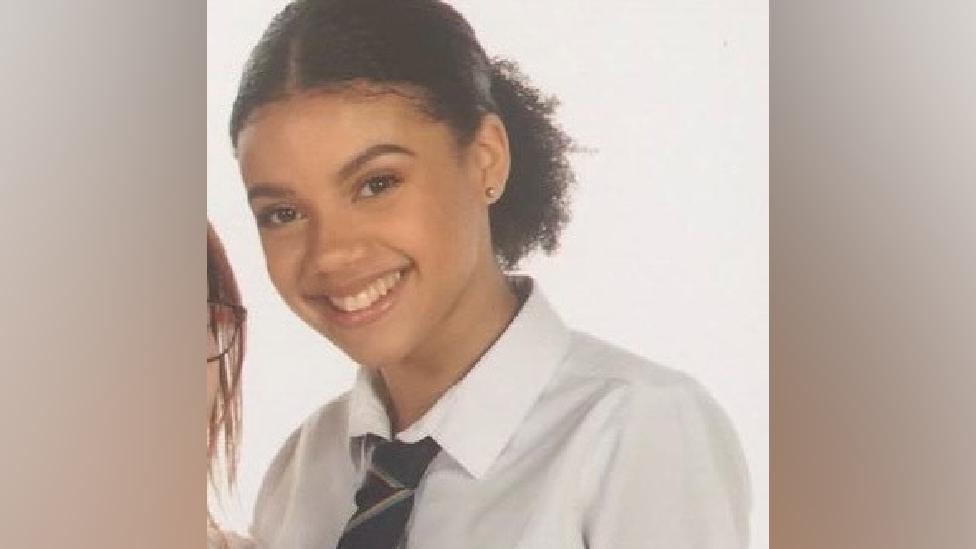
Onyx says she did not realise the micro-aggressive racism she faced in school until she had left
Onyx makes no secret how her school days were "the worst of my life".
"I entered a very confident, outgoing child and then my first week I was assaulted and called a racial slur and that set the tone for my entire school run and it was kind of one of those situations where I didn't realise how bad it was until I left."
She said not only were some students overtly racist, she also experienced racist micro-aggressions - indirect, subtle or unintentional discrimination - which she said she, and many teachers, did not have the vocabulary to deal with.
"Just little things like walking into a classroom and people wanting to pet your hair like a dog and I kind of had to sit there and take it and I didn't see it as a problem, but it also made me feel icky."
More formally, she said in her experience and that of others she has spoken to, the only black history taught to her was slavery and then the civil rights movement for her GCSEs.
Natalie Jones says teaching did not seem like a possible career choice because she “never saw a black teacher”
She said on some occasions she was shown the programme Roots, which is violent and uses graphic racist language, with no context and that students and teachers were uncomfortable and some laughed.
"Of course, they're things that are absolutely valuable to learn," she said.
"Everybody needs to know the awful things black people have gone through through history that should never be erased.
"However, what we learn is a very sanitised version and that being the only thing is completely detrimental. It's how bias and stereotypes are perpetuated."
She said diverse historical figures "shouldn't be tokenised" in education and time should be spent exploring how society has developed.

Now 21, Onyx says she can reflect on school experiences differently
While young people now have more access to resources online, it does not mean their experience is different and meant they could be more at risk, she said, particularly to the response of the Black Lives Matter movement online.
As well as a diverse curriculum, Onyx said it was equally important that children see themselves reflected in authority figures to prevent children from ethnic minorities becoming demotivated and underachieving compared to their peers.
"My whole entire education right from nursery up to college I've never had a black teacher.
"Being in a classroom full of people that don't look like you - the people that you're supposed to look up to - you don't believe that those things are possible for you and you don't see yourself in all of these different careers."
What difference could the new curriculum make?
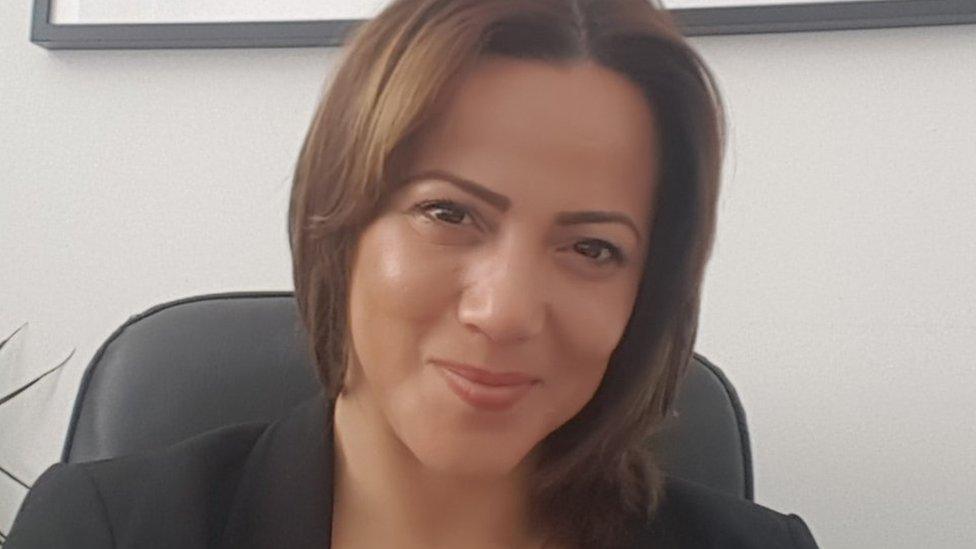
Donna Ali says the curriculum could make a big difference but young people need support to deal with the pushback
Quite a lot, according to Donna Ali, who last year co-founded BE.Xcellence, which identifies opportunities to support the aims of the Welsh government's anti-racism action plan, external.
The businesswoman and campaigner from Cardiff said the organisation had been working to build tools for schools to try and support children in early education.
She said more UK and Welsh focus on diverse histories would mean that, when children are forming their own opinions, any negative home or societal influence can be counteracted with education.
She added the Welsh government have consulted and developed tools with people from black, Asian and other ethnic groups not just "taken from off the shelf".
"We need to prepare our young people pupils for global citizenship, not a local citizenship.
"It's so important because, even if you don't have any diversity within the community, you still need to be prepared for the wider world."
Raheem lost a finger running from bullies after racial abuse, says his mother
'Children weren't prepared Black Lives Matter'
Ms Ali, who has one parent from Bangladesh and one from Africa, "struggled with identity for many years".
She said Black Lives Matter was a turning point for prominent black figures and conversations around racism and "a moment to stop and listen".
She added it gave people confidence to have conversations about racism but children from diverse backgrounds were unprepared to answer questions directed at them in the aftermath so there needed to be support for young people "to deal with pushback".
Natera Morris says some of the comments on social media have made her question how her friends feel about her
The Welsh government said: "The curriculum is designed to inspire learners to become ethical, informed citizens of Wales and the world, including helping young people to understand and respect their own and each other's cultures and traditions.
"It is vital that we increase the diversity of our teaching workforce to better support our learners."
They said a recent action plan, external aimed to improve the diversity of the workforce, including financial incentives to recruit more diverse teachers.
- Published29 September 2021
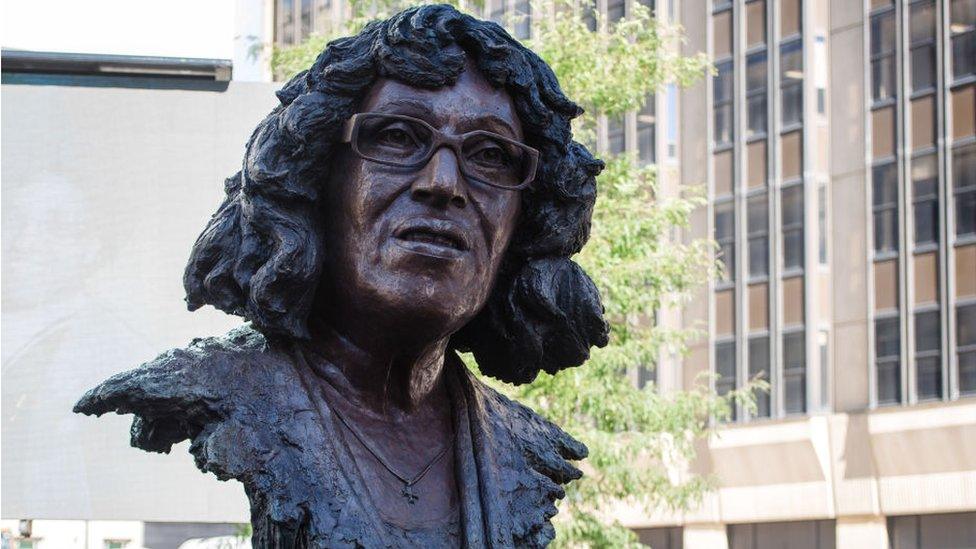
- Published7 October 2021
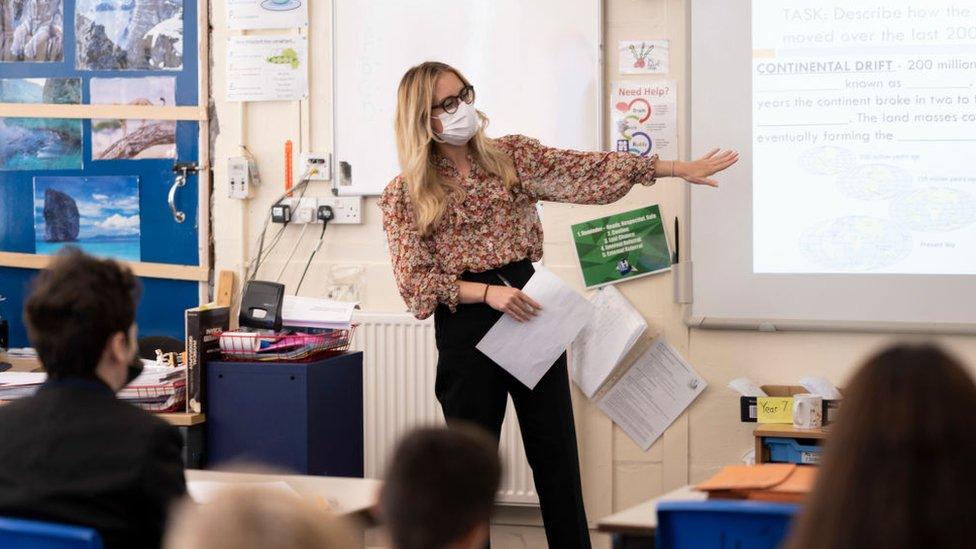
- Published6 July 2021
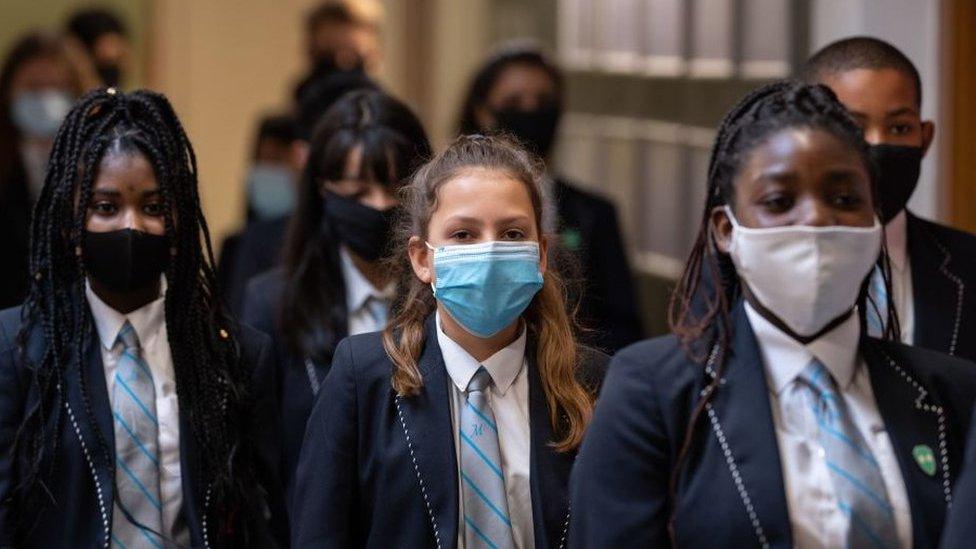
- Published24 May 2022
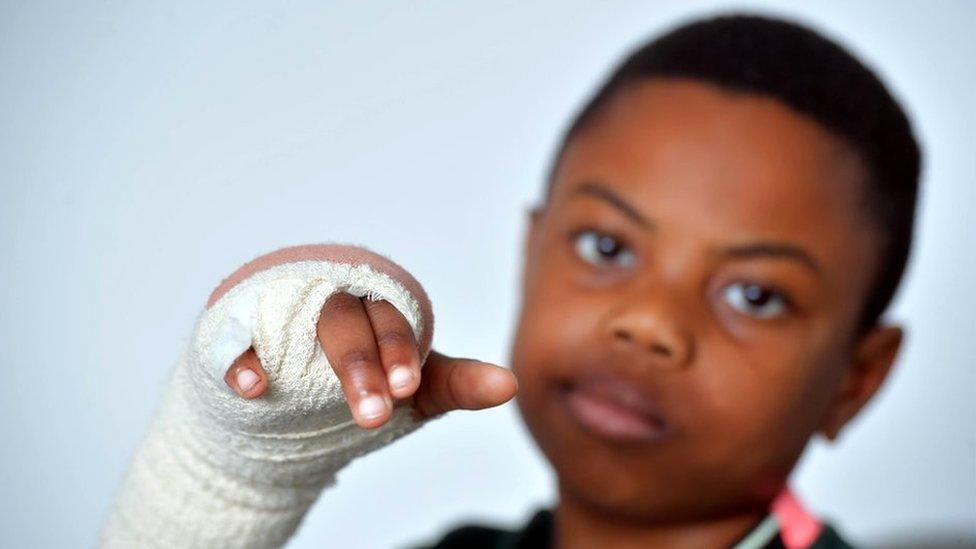
- Published19 March 2021

- Published28 October 2020
